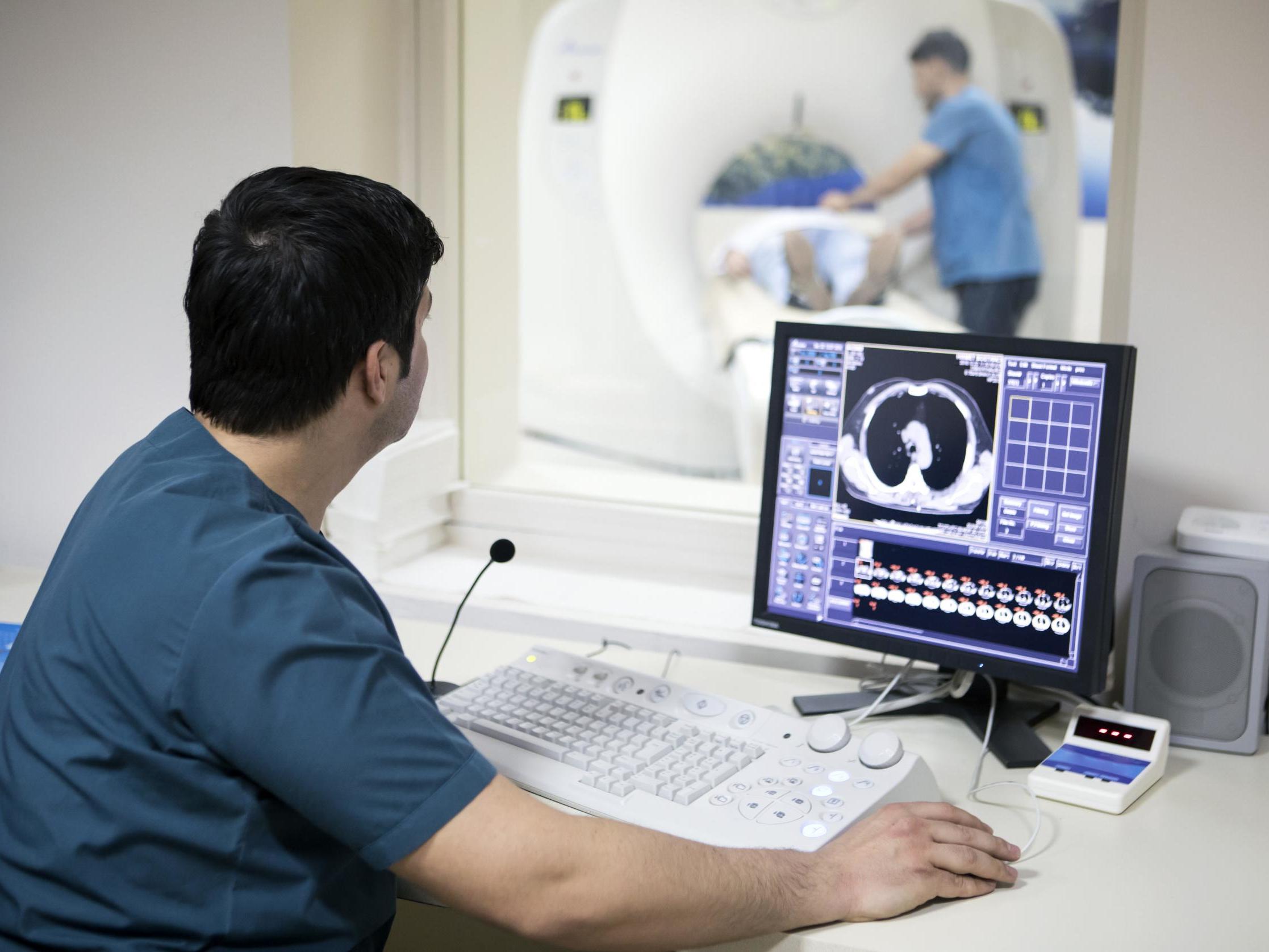Cancer patients may suffer because of NHS consultant shortage, report warns
Cutting-edge therapies could be denied as specialists quit health service

A shortage of NHS clinical oncologists is likely to hold back cancer patient care, a report has warned.
The study from the Royal College of Radiologists pointed to a growing staffing crisis, with predictions that within four years the workforce would be at least 22 per cent short of cancer consultants.
Cancer centres said they had “dire” staffing levels, with dozens of posts left open. One had had no new applicants since 2015.
The warning came as a separate study suggested breast cancer death rates would fall in the UK and nearly all EU countries this year.
However, the radiologists’ report said cutting-edge cancer therapies, such as immunotherapy and proton beam therapy, may not be delivered to all those who could benefit without more investment.
NHS at 70: Pride and worry as free health service celebrates birthday
Show all 18The study said the UK was short of at least 184 clinical oncologists – the minimum number needed to fill vacancies and cover the extra hours doctors are working to treat patients.
Vacancies are more than twice as high as in 2013 – 70, up from 33 – and more than half of posts have been empty for a year or more.
The college said a small rise in staff numbers last year was not keeping up with demand.
Demand for radiotherapy is going up by 2 per cent every year, and for chemotherapy by 4 per cent.
The report said: “We are losing expertise as consultants retire earlier and risking our workforce by asking them to work longer hours.”
Dr Tom Roques, lead author of the report, said Britain did not have enough consultants in training.
Numbers leaving are rising, and overseas recruitment had not been successful, partly due to differences in how doctors are trained, he said.
The burden of the disease will continue to increase, with implications for public health and costs to society
Meanwhile, research in the journal Annals of Oncology found the UK is expected to record the greatest fall in breast cancer deaths out of six countries, with a 13 per cent drop this year.
The researchers said national screening programmes, early diagnosis and better treatments were driving the improvements.
However, they warn deaths will rise as the population continues to grow.
“This means the burden of the disease will continue to increase, with consequent implications for public health and costs to society,” said Prof Carlo La Vecchia, of the University of Milan.
Of the six largest EU countries, the UK has the greatest predicted decrease (13 per cent), followed by France (10 per cent), Germany (9 per cent), Italy (7 per cent) and Spain (5 per cent). In Poland a 2 per cent increase is predicted.
Baroness Delyth Morgan, chief executive of Breast Cancer Now, said the UK was “finally expected to catch up with the rest of Europe”.
Subscribe to Independent Premium to bookmark this article
Want to bookmark your favourite articles and stories to read or reference later? Start your Independent Premium subscription today.


Join our commenting forum
Join thought-provoking conversations, follow other Independent readers and see their replies
Comments